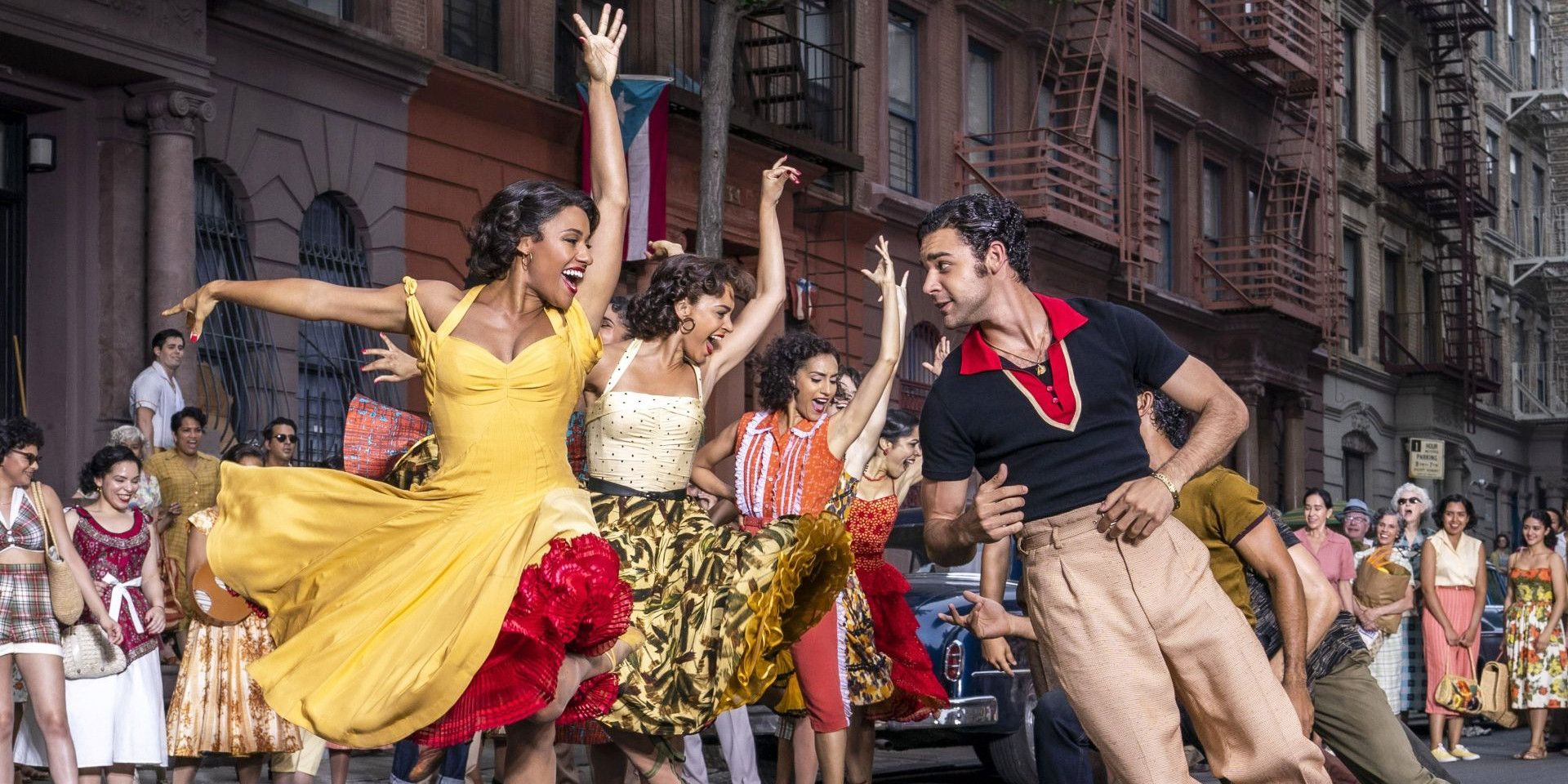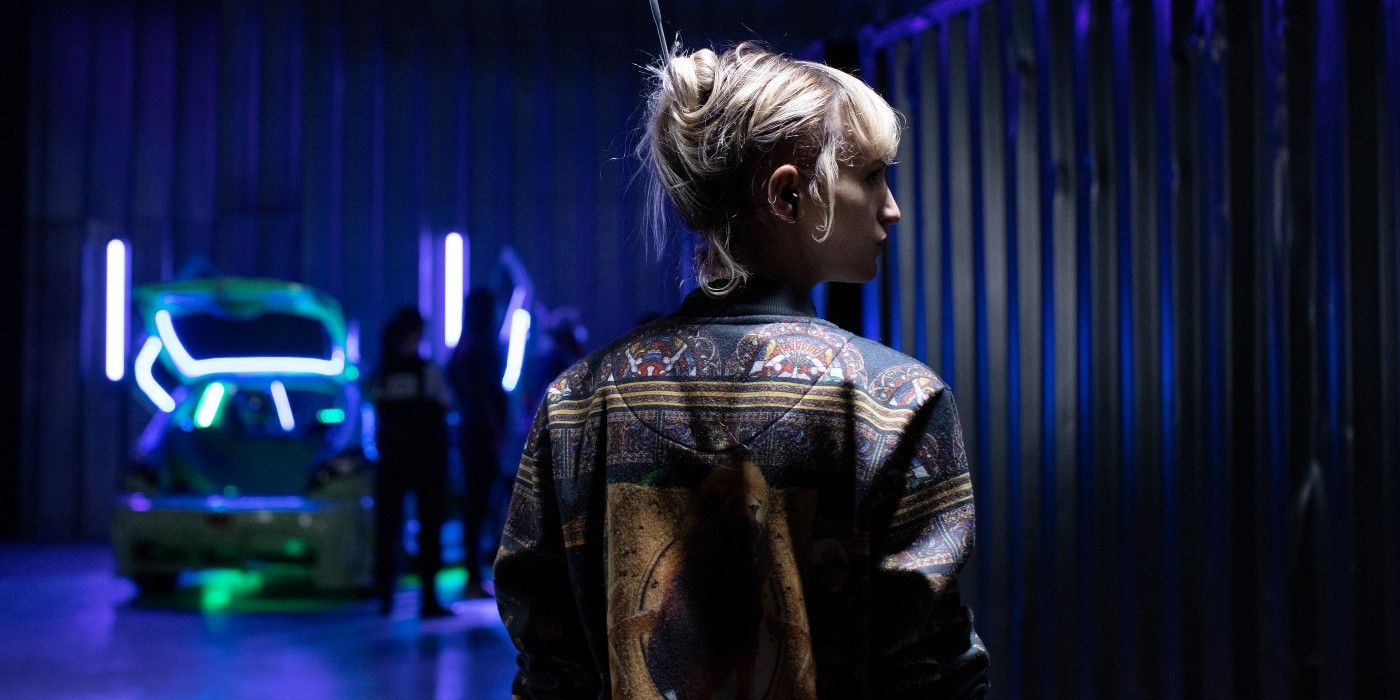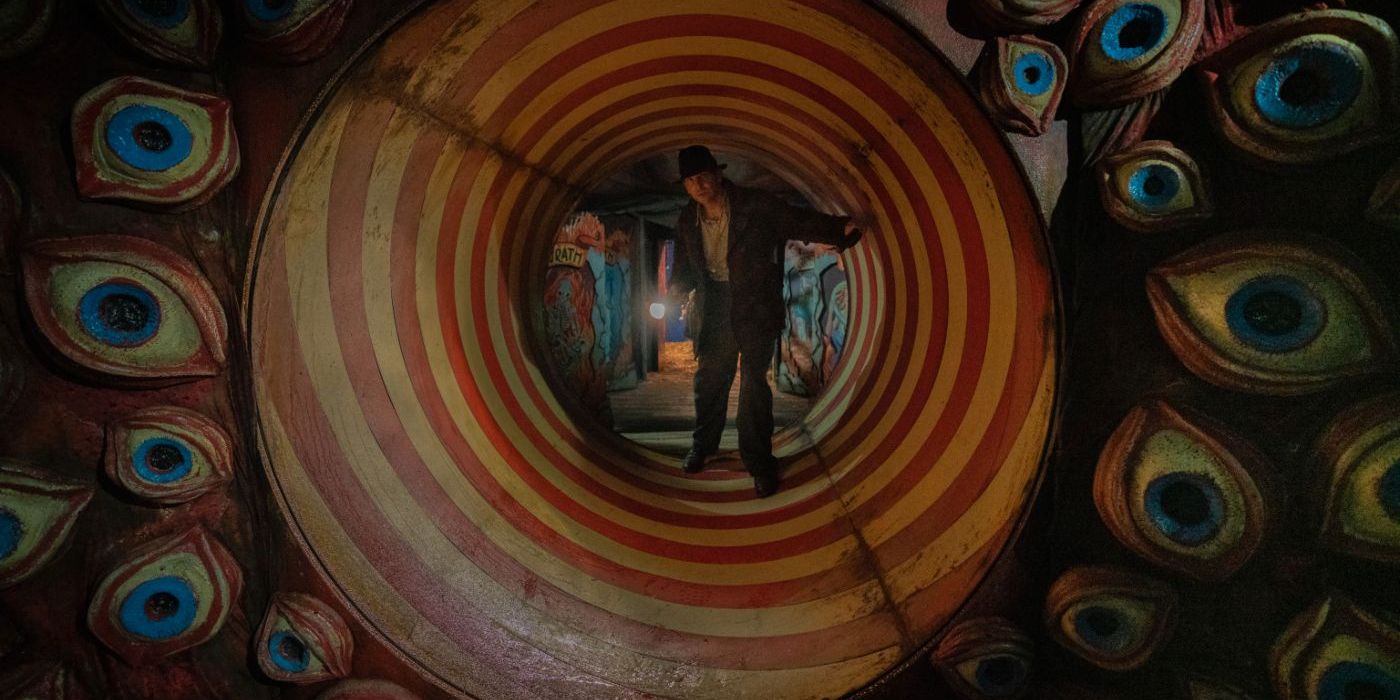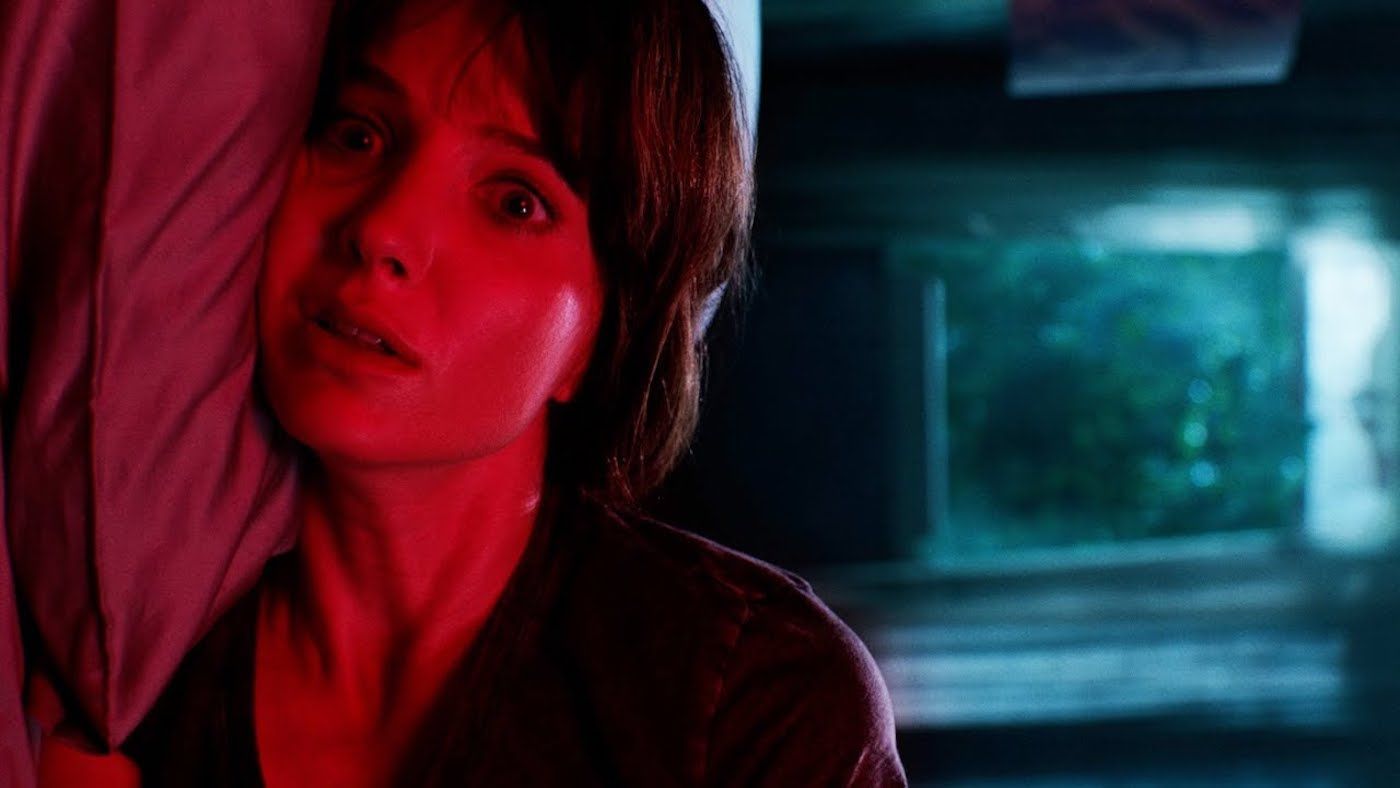To quote preeminent film scholar Vin Diesel: "Da movies." To elaborate just a bit further, movies really always have been the beacon I've used to track the major moments of my life. As yet another year comes to a close, I've looked back and realized all of my Top 10 lists embody a different point on the path: 2018 is the year I fell back in love with movies, 2019 made crystal clear the type of weird, campy nonsense that specifically wriggles its way into my heart, and 2020 saw movies quite literally save my sanity. 2021, an objectively effed-up 365 days of hogwash and balderdash, is the year I absolutely tried my hardest to stop arguing about movies. Discussing? Hell yeah. Debating? Occasionally! But good gravy, they're just moving pictures, they're just sight and sound. What moves you, moves you, and the 2021 takeaway is not one of us moves in the same way.
Below, you'll find my ten favorite movies of the year. These are the films that shook me the most, made me laugh, made me weep, made me stand up in a movie theater at the sight of a tumor monster launching a chair across the room. If you agree, that's wonderful; if you're inspired to check out something you missed, that's a beautiful thing; if you disagree, I'd genuinely love to hear why, but preferably in lower-case letters. It's just da movies, man. Da movies.
10. House of Gucci
I love mess. House of Gucci is a five-course meal of controlled mess orchestrated by the legend Ridley Scott in full no-fucks-given mode. The story of the Gucci fashion empire—primarily how Patrizia Reggiani (Lady Gaga) joined it, self-imploded, and then hired an assassin to murder her husband, Maurizio Gucci (Adam Driver)—is a sordid one, and any movie hoping to capture it should be composed of equal parts cheese, excess, and melodrama. House of Gucci has all that in spades, as every cast member is pitched to 1,0000, but in their own, unique direction. (Did Ridley Scott tell every one of these performers they were in a different movie? Impossible to say, but the evidence certainly suggests it.) In the lead, Gaga is part Disney villain, part Dracula bride, her laser-eyes focused on that Oscar in all the most committed ways possible. Al Pacino seems to be visibly trying to give himself a heart attack while Jeremy Irons aims more for "if someone's ascot collection came to life." Jared Leto, in a performance that lives outside the boundaries of "good" and "bad," buries himself in prosthetics and proceeds to show the world what it'd be like if the Joker was played by a malfunctioning Super Mario Bros. arcade machine. It is, in all ways, sheer chaos, in the same way that a Tom Ford original might look like an unwearable mess on the rack, but on the right model coming down the catwalk, it fits like a glove.
9. The Night House
Sure, The Night House technically had its festival debut back in 2020, but here's the thing: I don't care. What matters is this film, directed by David Bruckner, is a staggering treatise on grief and mental illness that also happens to be a damn scary psychological horror movie. (There's a jump scare in here that took years off my life.) Rebecca Hall puts on the definition of a powerhouse performance as a teacher named Beth whose husband (Evan Jonigkeit) recently committed suicide, leaving behind only a cryptic message: "You were right. There is nothing. Nothing is after you. You're safe now." From there, the film finds its horror in Beth's struggle with the unanswerable questions that follow a monumental loss; there is, of course, an actual supernatural presence at play here, but it works as a stand-in for the tremendous, horrifying nothingness familiar to anyone who has struggled—or continues to struggle—with intrusive thoughts about what comes after all of this. Hall is truly breathtaking as Beth, stripping away all pretensions and playing the part as a raw nerve. The idea that Hall should be the lead of more movies isn't new, but The Night House solidifies it as objective fact.
8. The Green Knight
There is rarely a second in The Green Knight in which Dev Patel is not soaking wet for one reason or another, a fact that would probably catapult this movie into my Top 10 even if it wasn't a deeply gorgeous medieval head-trip. But David Lowery's film is that, and so much more. Visually, it's one of those aesthetic wonders in which every frame should be hung in a gallery, Lowery and DP Andrew Droz Palermo dragging Patel's Sir Gawain through lush, endless greenery, dark fairy tale forests, and watercolors-come-to-life fantasy lands populated by tragic kings and wayward giants alike. It's a movie you kind of just let wash over you, especially because Lowery isn't interested in easy answers as to what the hell is actually happening at any given moment. Gawain's quest, on its surface, is simply A-to-Z; the young knight, eager to earn his place among the legends around him, beheads the monstrous Green Knight and must seek him out one year later to get an equal whacking in return. But The Green Knight wanders, The Green Knight diverges like a dream teetering toward a nightmare. But it also remains deeply relatable—even when it's not exactly understandable—thanks to the themes at its centers, themes of self-accountability and the price of ambition, relatable to anyone who has ever felt less than the peers sitting at the same table. Put more simply, I still maintain that The Green Knight is the Most Millennial Movie of 2021, the perfect story for an age where clout is exchanged as courtesy and men would literally rather pull a sword from a stone than go to therapy. No line of dialogue shook me to my core more than Gawain walking through several layers of hell to gain the social acceptance he so badly coveted, seeing the quick, brutal end to all that effort, and asking with a shaking voice: "Is this all there is?"
7. tick, tick...BOOM!
Sometimes a movie just drops into your life at the perfect time. As a writer turning 30 in the middle of a global pandemic, I'm not exactly surprised that tick, tick...BOOM! went ahead and kicked me in the nards with the force of an NFL placekicker, but in the most beautiful way possible. Lin-Manuel Miranda's adaptation of Jonathan Larson's stage show—itself a musical memoir about the late writer's early days of bohemian New York living—is an electric love letter to the anxious creative. Embodying that sense of aimless urgency is a never-been-better Andrew Garfield, utilizing every fiber of his endearing scarecrow energy to welcome us into the mile-a-minute mind of Larson, still a few years away from changing musical theater forever with Rent. (And, tragically, passing away the day his groundbreaking musical was set to debut on Off-Broadway.) In many ways, tick, tick...Boom is a surprisingly effective companion piece to this year's Bo Burnham: Inside, another peek inside a fretful creative mind on the cusp of 30. Inside perfectly captures that helpless, drowning feeling of being caught in the white-water passage of time; tick, tick...Boom! is a kick in the ass to start building your boat.
Also, "30/90" has been stuck in my head for an entire dang month with no signs of leaving any time soon. There's also that.
6. The Mitchells vs. The Machines
Simply put, I felt more sheer unabashed joy watching The Mitchells vs. The Machines than during any other movie in 2021. Mike Rianda's feature-directing debut—which also boats Phil Lord and Chris Miller as producers, because of course it does—checks off every aspect of what an animated comedy can and should be. The look of it feels like a natural springboard off of Spider-Man: Into the Spider-Verse—easily one of the best films of 2018—which is like a 1930s comic book serial came to life and was given the Super Soldier Serum; I could watch this movie on mute and just bask in its technicolor fireworks display. But man, there's also such a wonderful heart at the center of its story, which sees aspiring filmmaker Katie (Abbi Jacobson) juggling a fraught relationship with her embarrassingly earnest father (Danny McBride) and an impending cross-country road trip to college when, wouldn't you know it, a rogue A.I. (Olivia Colman) kicks off the robot apocalypse and attempts to enslave all human life on Earth. Pile on to that an endless parade of sequences that are just straight-up funny—I had to pause the Furby scene to catch my breath—and you get easily the purest example of grinning-from-start-to-finish filmmaking I've experienced in quite some time.
5. Pig
The thing about the endless debate over whether or not Nicolas Cage is a "good actor" is that it shouldn't be a debate at all. Not only has Nicolas Cage been one of our most fascinating, dynamic screen presences of the last several decades, but films like Pig prove he's still capable of an absolute knockout. In Michael Sarnoski's extraordinarily measured directorial debut, Cage puts on his quietest performance in years, almost at odds with the John Wick-ish potential of the film's premise. Thieves in the night snatch the pig of a recluse truffle forager (Cage), who must navigate the odd underground network of Portland restauranteurs to find his hog friend. But Pig isn't a revenge fantasy, it's a meditation on the ways grief can become all-consuming, with Cage's often-wordless performance the embodiment of the ache at the center of your chest. Reader, I am sitting here once again getting teary-eyed at every quiet choice Cage makes in this film, every time he could have ranted or raged but instead internalized life's many bits of unfairness and said nothing at all. Boasting one of the most beautiful final shots of the last decade, Pig is for anyone who has ever yearned for the other side of loss. I think about it at least once a day.
4. West Side Story
And now, a searing hot take, sorry if it offends: Steven Spielberg? Pretty good at directing motion pictures, especially when it comes to things like blocking, staging, and just generally putting the camera exactly where it needs to be for maximum emotional impact. There are roughly a million different reasons why I'm thankful Spielberg's take on the iconic musical West Side Story exists, but first and foremost it's just...man, this is a movie. A capital-letter Movie. In a time when most blockbusters insist the only two color palettes are desert-brown and dishwater-grey, when choreography is cut to pieces to hide lazy craftsmanship, West Side Story feels like a revelation. A gift. It's a reminder that films can (and should!) be bursting at the seams with color, that every corner of the frame can tell its own story. I almost wept every single time Janusz Kaminski's camera panned to a wide shot and then just held on that gorgeous new choreography by Justin Peck, letting the audience actually sit in that tableau of movement, color, and sound.
It also helps that West Side Story is comprised almost top-to-bottom of star-making performances, primarily in the case of Rachel Zeigler as Maria. In her first film performance, uh, ever, Zeigler is almost supernaturally comfortable as a screen presence, filling Spielberg's trademark close-ups with both the vulnerability required of the character and the magnetism of a movie star. (I, like many people, went into this movie worried about Ansel Elgort, but was pleasantly surprised to find it is possible for a performance to be so greatly outshined it basically disappears completely.) Nearly stealing the entire picture out from under Zeigler, though, is Ariana DeBose as Anita, a force-of-nature performance worthy of every award known to humankind plus some we haven't invented yet, equaled only by Mike Faist, who brings a brand-new sense of charisma and scrawny danger to Riff. Jesus, I haven't even mentioned the quiet power of the returning Rita Moreno, this time playing Valentina, a new character added by writer Tony Kushner, one of a few potent changes the Pulitzer prize-winner added to the original story. Kushner also ensures there's a powerful melancholy underlining everything, one born not from the death of young love but the impending death of an entire culture; this West Side Story makes it clear that the territory being warred over by the Jets and Sharks is doomed to be demolished for high rises in just a few short years.
3. Titane
At no point during Julia Ducournau's white-knuckle, full-throttle descent into glorious madness could I have predicted what was going to happen in the next five seconds. Titane is one of those movies where you have to strap yourself in tight and just give yourself over to a filmmaker who is in full control of your every reaction. Stomach-churning, nauseating, and oddly moving at every turn, Titane is so much more than the movie wherein a woman (Agathe Rousselle, magnetic) fucks a car and then carries that car's baby. (Although to be clear, this does happen.) It's also, in its own sick way, an ode to found families, a blood-covered drama about accepting love in whatever form it finds you. With just two features under her belt, Ducournau is arguably the gnarliest filmmaker working today. The early scene in Titane when we meet Rousselle's Alexia, the camera gliding through the sweat and chrome of a grimy auto show to find our main character in a sensual world of her own atop the hood of a muscle car, might be the most thrilling single sequence of the year if it wasn't topped in the very same movie in the scene where we follow Alexia—who is, it must be mentioned, also a serial killer—breathlessly moves from victim to victim throughout an entire house. The moment with the stool has been playing on a loop at the back of my mind for months; if ya know, ya know.
2. Nightmare Alley
Every single frame of Nightmare Alley is a dirty, disgusting flex. Oscar-winning friend to the monsters Guillermo del Toro has always known how to design an eye-popping image, but with this remake of the 1947 carnival noir—itself based on a William Lindsay Gresham novel—the filmmaker has truly crafted his madhouse masterpiece. It's also, for obvious reasons, Del Toro's most human movie, in the sense that, for the first time, there literally are no monsters in the script he co-wrote with Kim Morgan. But he uses that as an opportunity to delve into the dark heart of humanity, especially the inscrutable mentalist Stanton Carlisle (Bradley Cooper) who tricks and betrays himself into his own epic downfall, in classic noir fashion. Nightmare Alley is exactly that, a nightmare, a spiral down into the muddiest muck a person can find themselves in, and along the way Del Toro gorgeously illustrates the point he's been trying to make all along: The barrier between man and monster is as solid as a carnival barker's promises.
Good lord, this imagery; I want to live inside every shot of crackling neon against shallow rain puddles, every frame of distant lightning behind an empty Ferris wheel, every time Del Toro and DP Dan Laustsen light Cate Blanchett like the golden idol in an adventure serial, promising danger and riches in equal measure. Man, Cate Blanchett in this film, putting on a performance dripping with poisoned honey as Lilith Ritter, the psychologist who whispers in Stanton's ear while pushing him toward a cliff. Nightmare Alley is full of sweet, beautiful lies, and I believed every one of them until its absolute gut-punch of an ending, a 15-second close-up that should nab Cooper an Oscar on its own.
1. Malignant
What more can I possibly say about Malignant that I haven't already been screaming at every stranger I pass on the street since September? In the year of our lord 2021, director James Wan and writer Akela Cooper debuted an absolutely out-of-its-mind Giallo throwback, clad in black leather, bathed in red neon, and oozing with camp. That Wan also did this through a major studio system, thanks to a hefty slice of creative freedom following Aquaman's billion-dollar run, makes Malignant feel like that much more of a miracle. That's the thing, this movie isn't just my favorite of the year (decade? life??) because a tiny tumor monster bursts out the back of a woman's (Annabelle Wallis) head and proceeds to knife-murder an entire building full of people, backward. (Although the fact this does happen, and is inarguably a top-three action scene of the year, certainly helps.) Malignant holds a special place in my heart because of what it represents, the idea that there's still a place for something this unabashedly weird and dedicated to genre in our larger pop culture. Comic book tentpoles aren't going to stop dominating the box office anytime soon, but there's got to still be room for original ideas, especially in horror, where something as wonderfully batshit as Malignant can thrive. This movie feels like something you'd find at the very back of a video store in 1987. I love it so much. Gabriel should be the president of the United States.
Honorable Mention (in alphabetical order): Benedetta, Dune, Fear Street trilogy, Free Guy, The Harder They Fall, Last Night In Soho, The Matrix Resurrections, Nobody, Old, Shang-Chi and the Legend of the Ten Rings, Spider-Man: No Way Home, Old, Zola

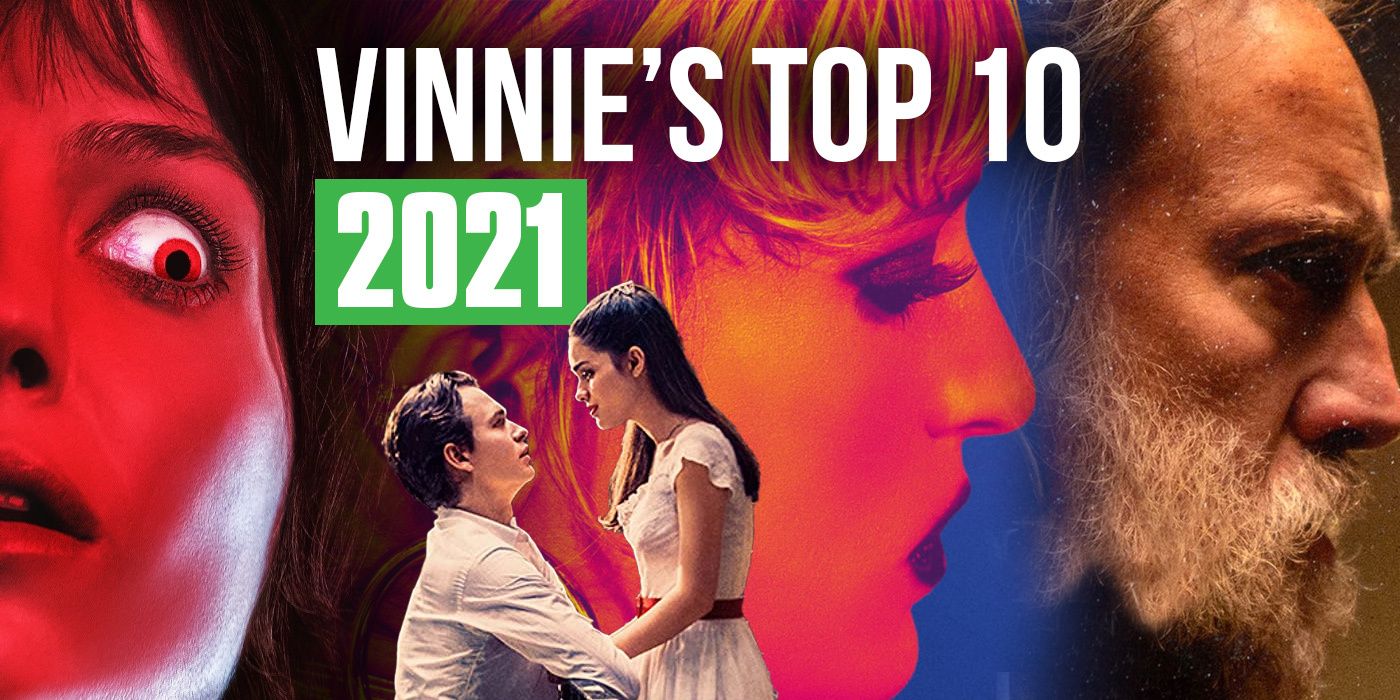
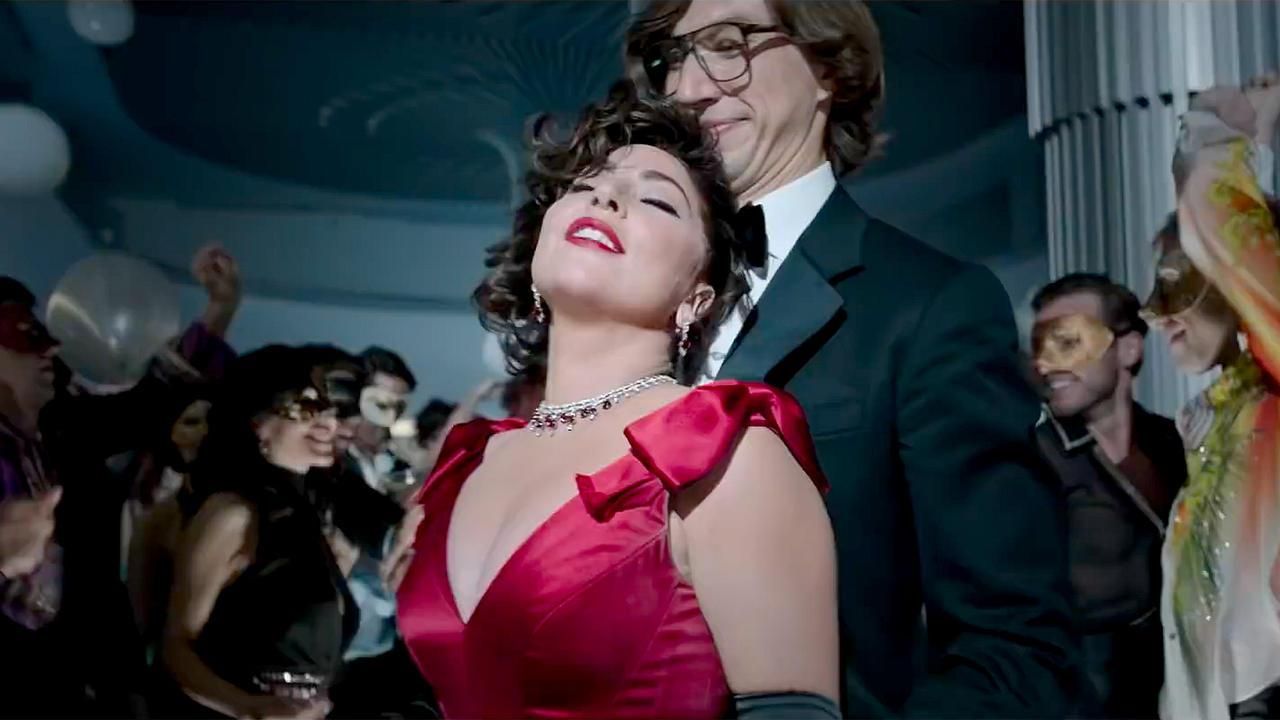
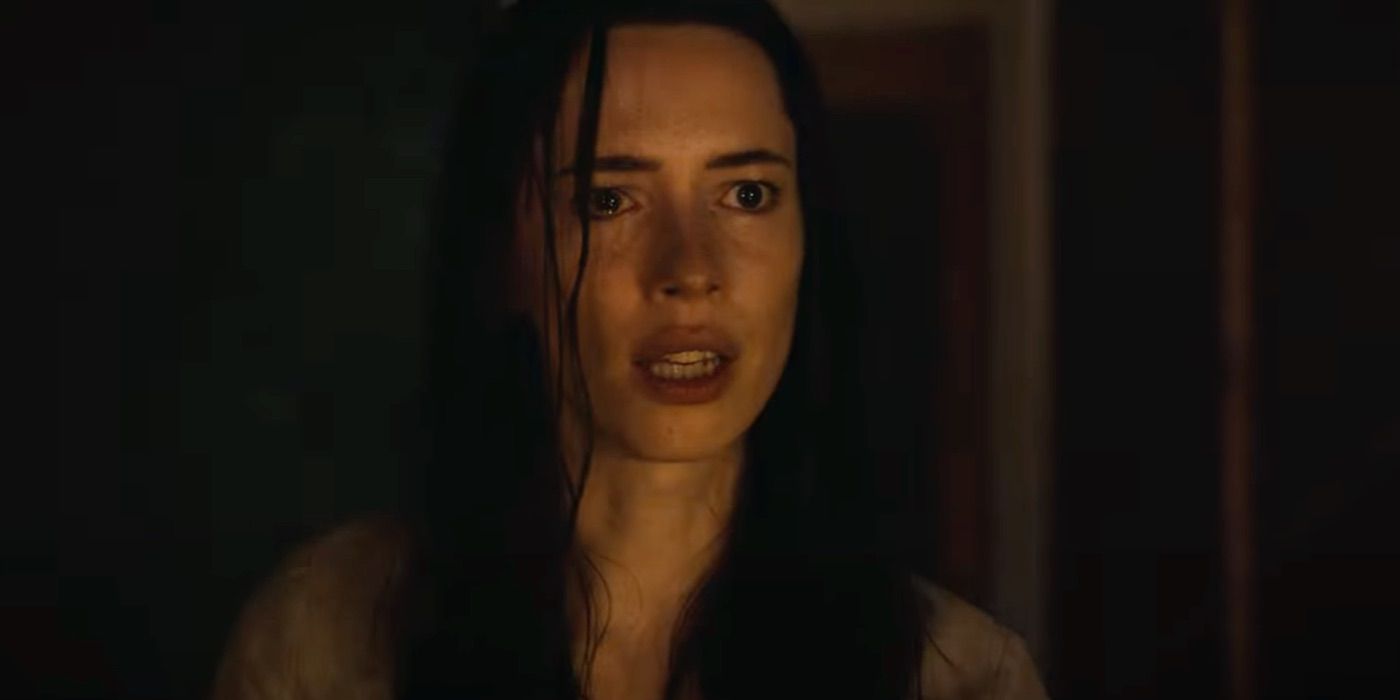
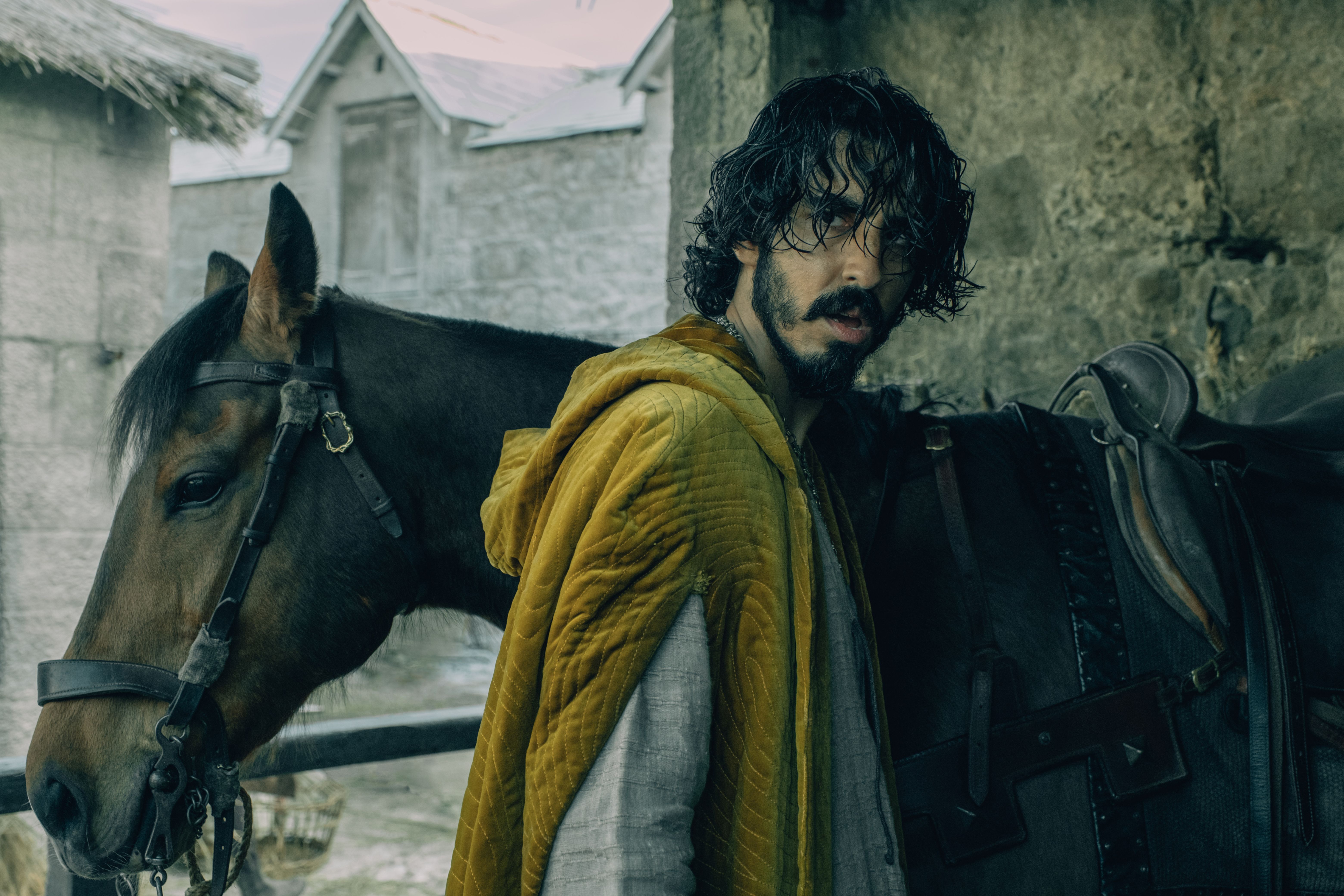
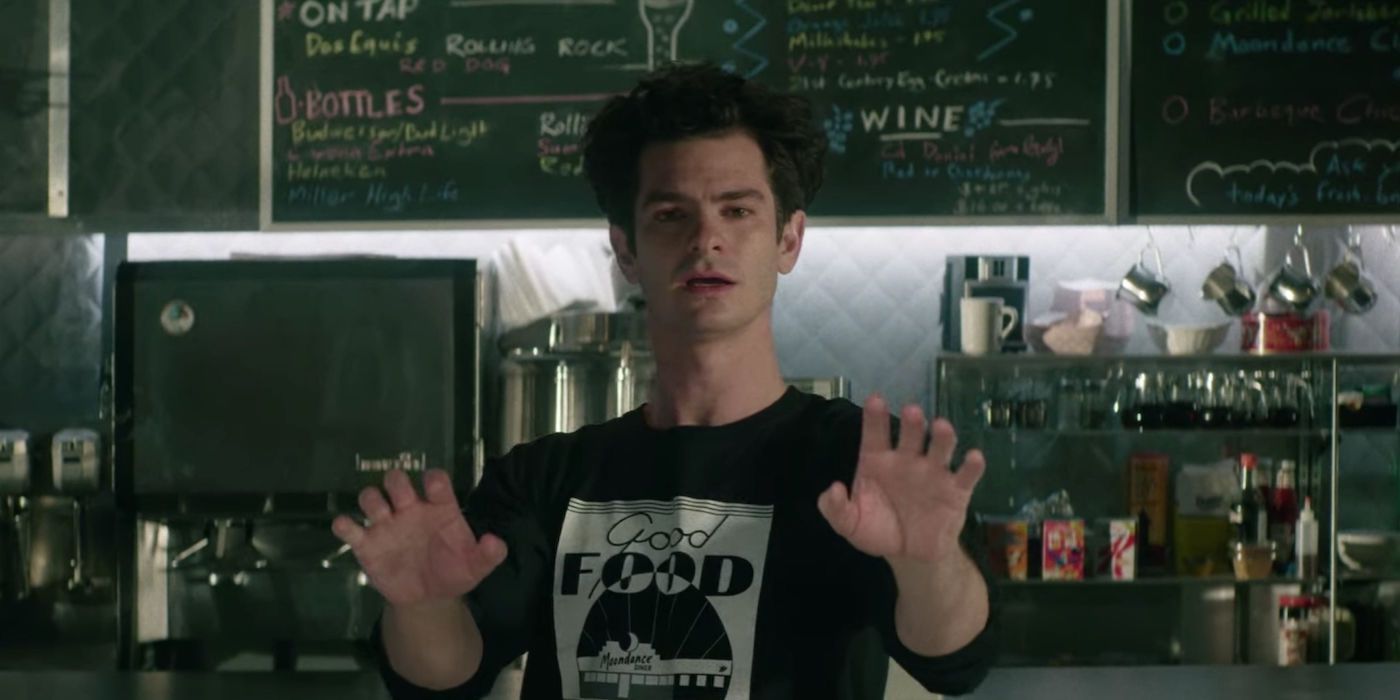
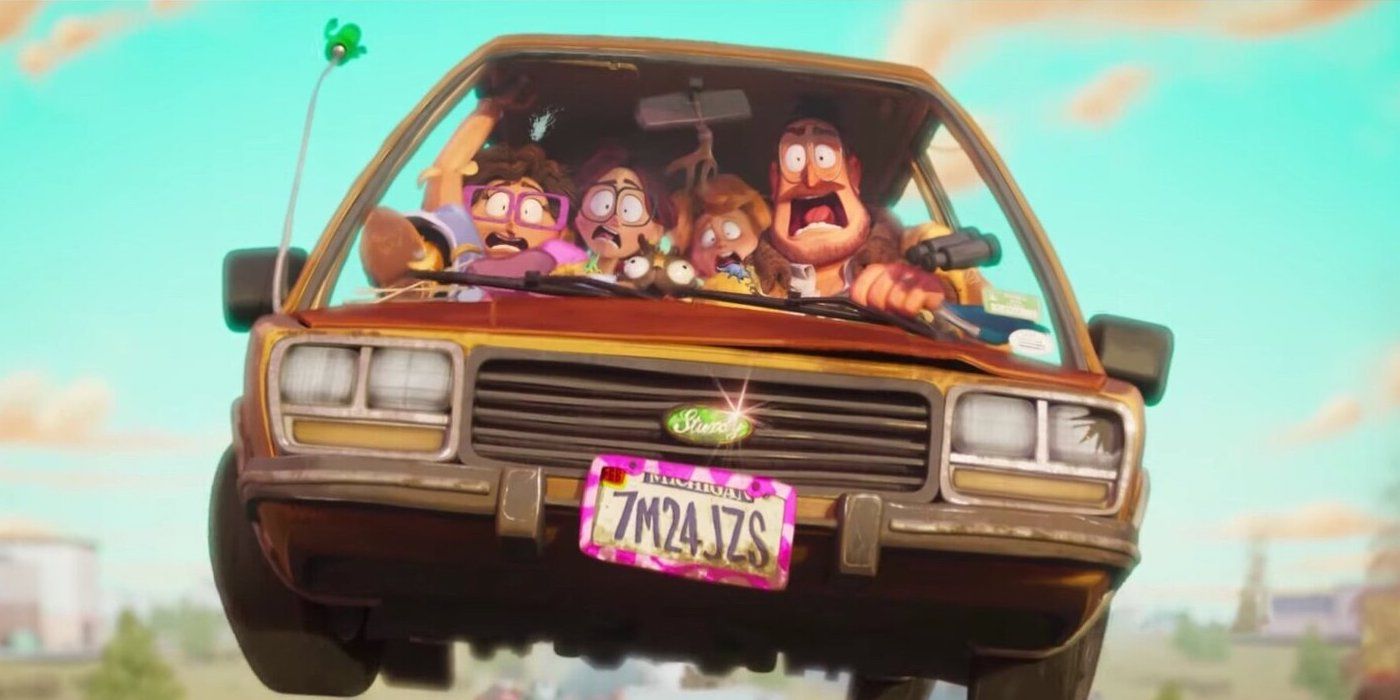
.jpg)
